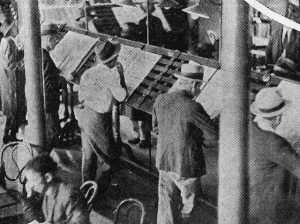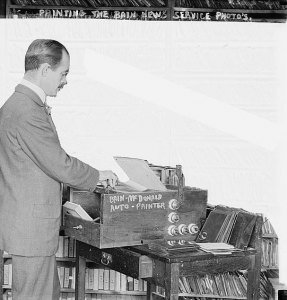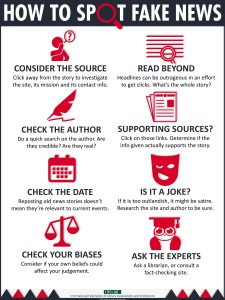The core mission of libraries is to provide people with access to information. With flows of information increasingly taking place online, our institutions have a major interest in the way the Internet works.
In December of this year, the world will celebrate 50/50 – the point at which the share of the world’s population with Internet accesses passes 50%. This will be a success to celebrate, but also a reminder of how many people remain unconnected.
Moreover, serious concerns remain about the way in which the actions of governments and private actors can affect this access, and whether people themselves are equipped to make best use of the possibilities.
In short, if people do not have access, or if this access is subject to restrictions, then the mission of libraries cannot be achieved. This blog lists a few of the issues currently on the agenda.
Delivering Access – New Tools?
As highlighted in the introduction, the celebrations around giving half of the world’s population access to the Internet will be clouded by the fact that the other half remain offline. While the unconnected are concentrated in developing countries, there are still minorities in richer countries who are cut off.
New technologies and techniques are emerging for getting people online. Major Internet companies have their own projects for giving access, through satellites, balloons and other tools. While Facebook, for example, has apparently given up on its plans to use drones, it is now investing in satellites.
One technology is TV White Space (TVWS), promoted by its supporters as a particularly smart means of bringing Internet to remote areas. It works by using frequencies which currently are not being used for television, and dedicating them to WiFi. A number of projects using this approach are at work in the United States and Colombia.
There are also efforts by cities and wider communities to set up new networks. Sometimes these are run by local governments who recognise the value of faster connectivity (‘municipal broadband’). Sometimes, it’s residents themselves who come together to establish ‘community networks’.
In both cases, they bypass traditional Internet Service Providers (ISPs), often accused of doing too little to invest in higher speeds.
However, such projects need favourable regulation to work. With radio spectrum usually ‘owned’ by government, there are ongoing questions about who can access this for TVWS projects. There are also stories of restrictions on use of telegraph poles being used to prevent municipal fibre projects.
In addition, there have been some signs of renewed interest in Universal Service and Access Funds (USAFs). These collect funds from taxes on telecommunications providers in order to support connections to poorly served areas and populations.
However, they are frequently under-used, and can be subject to the same risks of corruption and bureaucracy as other parts of government. A recent report from the Alliance for Affordable Internet (A4AI) underlines how, if properly deployed, they could make the difference for women in Africa for example.
Libraries are both beneficiaries of better connectivity, and potentially drivers of new projects. To do this, they will need the right regulations and financial support to be able to give their users – and their communities – effective access to information.
Delivering Content – New Threats?
Yet not all connections are equal. Even when the cables are laid, or the masts turned on, what a user can see online will depend on the rules and practices in place.
The role of government is a key concern. Governments continue to engage in complete or partial shutdowns, as well as in focused censorship.
AccessNow’s monitoring of shutdowns shows that these are depressingly frequent, with everything from national security to school exams offering an excuse. The collateral damage caused by these moves – to businesses, to medicine, to citizens’ daily communications, is significant.
Censorship continues to be a problem. At the end of April, the anniversary of Turkey’s ban of Wikipedia was marked. Freedom House’s 2017 Freedom on the Internet report showed record levels of online censorship and blocking. Steps in Tunisia, for example, to oblige bloggers to ‘register’ are also worrying.
Meanwhile, concerns about ‘fake news’ have served as an excuse for some governments to take dramatic action against both writers and websites. Cambodia, Azerbaijan and Vietnam provide some recent examples. In parallel, as Freedom House (mentioned above) underlines, governments are also more than ready to share disinformation themselves using the same tools.
Yet it would be a mistake to focus only on government. As technology advances, and with it the possiblity to use data to make new connections and offer new services, the risk to personal information grows.
The Cambridge Analytica scandal, as well as other cases of dubious practice by major Internet firms, have shown what can be done with personal data. Data ethics has become a new area for discussion, closely linked to the explosion in the volumes of information collected online (including by the Internet of things).
The entry into force of the General Data Protection Regulation in the European Union offers a response, but much will depend on how effectively people take up the new possibilities it creates. Similar rules appear to be spreading to California and Brazil, and data protection is an increasingly high-profile issue in trade discusisons.
Furthermore, net neutrality remains on the agenda. In the United States, the resistance to moves by the government to allow companies to discriminate continues at federal level. Individual states are passing their own laws to guarantee equal access to all content as far as possible.
Elsewhere, the news is better, with India underlining its support for net neutrality, and steps in some countries at least to do away with zero-rating offerings (i.e. allowing users to access some services without this counting towards their data caps).
An additional issue arises where private companies are pressured to take steps that governments themselves cannot.
As highlighted by the UN Special Rapporteur on Human Rights, platforms are not independent. They can be pressured, for example, to block certain types of content (‘fake news’, explicit content, extreme content), or apply rulings such as the European Union’s right to be forgotten principle.
In doing so, they take on similar powers to governments or courts, but with less oversight or control. Moreover, when governments pass laws that only create incentives to block content, there is no guarantee that legal content will be defended. Laws such as FOSTA and SESTA in the United States and anti fake-news laws in Germany and France risk doing just this.
For libraries, this is an issue of growing importance. The content to which libraires give access is increasingly online, rather than on-the-shelf. And libraries are committed to broader access to information as a driver of development.
While there is a case for acting against specific content that genuinely poses a threat, indiscriminate restrictions imposed by governments or companies, including the chilling effect that surveillance and data-collection can create, are bad news for libraries.
Delivering Skills – New Focus?
A final area of focus is on individuals themselves. Even where there is connectivity, and the connection is not subject to unjusitified restricitons, citizens themselves need the skills and confidence to get online.
As Pew Internet Centre research showed recently, a falling share of people see the Internet as only having brought benefits for society. Other surveys suggest growing levels of distrust and concern about about the risks encountered on the Internet.
There is a risk, when faced with such worries, that governments will feel empowered to take more restrictive stances (i.e. banning non-mainstream content). As a result, the need to give citizens themselves the confidence to deal with what they find online themselves is growing.
Digital skills training, however, remains minimal in many cases. This can be down to a lack of equipment, a lack of capacity among teaching staff, or simply a failure to update teaching. Moreover, digital skills cannot only be a task for formal education.
Meaningful digital skills training, as highlighted in IFLA’s statement on digital literacy, needs to be about more than just coding (important, but for now unlikely to be relevant to everyone in their future lives), and focus on a broader range of competences.
This should include, notably, an updated version of media and information literacy, adapted to a digital age. It may well also require a renewed focus on some of the ‘soft skills’ which are also important in the offline world.
A number of countries are adopting more holistic curricula, and the OECD is already incorporating concepts such as ‘problem solving in a digital environment’ into its own work. But we are likely to see more moves among governments to develop more comprehensive packages of skills and training in coming years.
Libraries are natural partners for delivering such skills, at least when they are suffficiently equipped and staffed. As welcoming places open to all of the community, regardless of age, they can complement the work of formal education.
With a focus, also, on providing the information (and information literacy) to meet real life needs, they can play a real role in shaping digital skills training for all.
The Internet’s potential to accelerate development is high, but not inevitable. As this blog indicates, there is a regular stream of questions, of doubts. How to make full use of all possibiities to get more people connected? How to avoid overreacting to ‘fake news’ and concern about certain content? How to give people the confidence they need to use the Internet effectively?
All are questions with a real importance for libraries, and to which libraries can help provide solutions.


